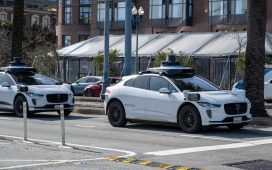“There are discussions happening with other telcos in different forms,” Saurabh Kumar Sahu, Managing Director, and Lead – Communications, Media and Technology, Accenture in India told ETTelecom, adding that 5G has to be treated like a “very sharp digital enabler” and not like a digital capex solution for operational efficiency.
The top executive further said that the multinational is working with more than one telco in the area of next generation technology.
Last year, Accenture partnered with Sunil Mittal-driven Bharti Airtel to help accelerate 5G adoption for Indian enterprises.
Following the 5G launch, telecom operators Airtel and Jio, according to him, demonstrated use cases such as precision agriculture and remote education, among others.
“At the Airtel’s advanced 5G lab in Network Experience Centre in Manesar, we are showcasing two use cases – a robotic arm and digital twin of a shipyard. These use cases are aimed at improving industrial productivity, and will help in precision manufacturing and real-time remote maintenance,” Sahu said, adding that such are the native 5G use cases.Based on a real 5G experience, the telco is showcasing capabilities to enterprise customers at its network centre.The Irish company also operates a 5G zone at its Innovation Hub in Bengaluru which includes specific use-cases such as the 5G Accelerator to help telecom companies in network planning, testing, rollout and operations.
Billionaire Mukesh Ambani-owned Jio and Airtel are aggressively eyeing 5G-led sectoral use cases to upswing their enterprise business following the low average revenue per user (ARPU) in consumer mobility segment.
Julie Sweet-headed Accenture offers application services, technology consulting, and cloud-led transformation across multiple sectors.
“We are essentially trying to educate the enterprises, to help them identify use cases and how the benefits will be realised. We are now working with enterprises along with telcos.”
The Dublin-based company works as an orchestrator, and typically teams up with telecom operators together with hyperscalers or cloud platform providers and enterprises.
Sahu further said that the partnerships should not be restricted to a short-term proof-of-concept (PoC) but a relationship with an enterprise must be based on their next 5 to 10-years strategy for digital transformation.
Citing an example of a mining company, the top executive said that in a pursuit to digitise and automate the entire mining and production, 5G could bring in an exciting business case including worker safety but such should not merely for a 3-month trial period.
Accenture, according to the executive, has over the years developed significant domain expertise. “5G use cases are very relevant in manufacturing, energy (oil and gas), retail, healthcare, and education. In each of the six sectors, the applicability of 5G will be very different.”
70% of enterprises are expected to make large investments in 5G in the next three years as compared to other emerging technologies, according to a recent EY finding.
“To orchestrate all of this you need a partner who understands technology and has a strong domain knowledge and is able to implement it. That is a unique position which only Accenture has,” he added.
Last month Accenture committed to invest $3 billion in artificial intelligence (AI) over the next three-year period, focussing on creating a team of AI professionals and AI-focused solutions for its customers.











